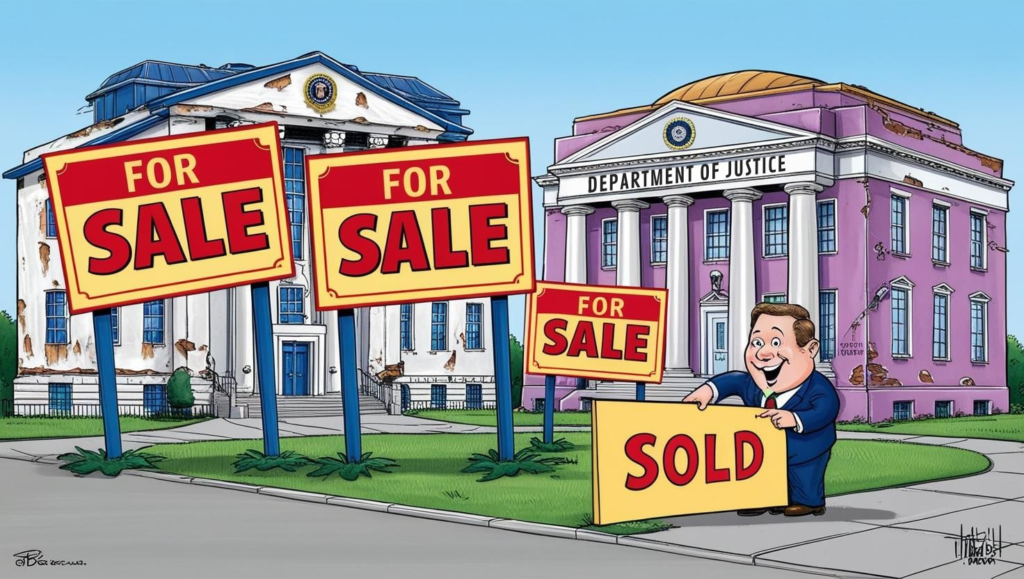President Donald Trump has proposed selling 443 federal properties, including the headquarters of major federal agencies like the FBI and the Department of Justice.
This initiative is part of a broader plan to shrink the federal government’s footprint and put underused assets to better use.
The properties slated for potential sale are spread across 47 states, as well as Puerto Rico and the U.S. Virgin Islands.
While a detailed list of specific properties has not yet been released, the proposal is already drawing attention from supporters of limited government and fiscal responsibility.
“The federal government owns far too much land and far too many buildings that it simply doesn’t need,” said Trump. “This is about putting taxpayer dollars to better use and letting the private sector find innovative ways to utilize these properties.”
Nevada, a state where the federal government owns over 80% of the land, could potentially see some changes if properties in the state are included in the sale.
Many Nevadans have long argued that federal control of such vast amounts of land stifles economic growth and local control.
If federal properties in Nevada are sold, it could open up new opportunities for development and job creation, particularly in rural areas.
The proposed sale is part of a broader effort to trim down the federal government.
Trump’s approach focuses on efficiency and reducing bureaucracy. By selling off properties that are underused or not being used at all, the government could save on maintenance and upkeep costs.
The money generated from the sales could also be used to reduce the national debt or fund other initiatives that provide real benefits to American taxpayers.
For example, rather than paying for empty office space, those funds could go toward infrastructure projects, education, or tax relief.
Some opponents of the move worry that selling federal properties could lead to valuable public assets falling into private hands. Properties with historical or cultural significance could be lost, or that the sales might benefit wealthy developers rather than everyday Americans.
Conversely, supporters of the plan argue that the current system often leaves properties sitting empty or underused for years, draining taxpayer money for little to no benefit. They believe that selling these properties could bring new life to stagnant areas and boost local economies.
The sale of underused federal properties aligns with the principle that the government should focus on its core responsibilities and leave more room for private enterprise.
The proposal is still in its early stages, and it will likely face debates and challenges before any sales take place. The process of identifying which properties could be sold and how the sales would be managed will take time.
However, the conversation about government efficiency and the use of taxpayer dollars is one that many believe is long overdue.
Whether or not the proposal goes through, it has sparked an important debate about the size and role of the federal government. At a time when many Americans are feeling the pinch of inflation and rising costs, finding ways to cut government waste is more important than ever.
Nevada residents, in particular, will be watching closely to see if any local properties are included in the sale and what opportunities that might bring.
With so much of the state under federal control, a shift toward more private ownership could mean more chances for growth and prosperity.
In the end, this proposal is about prioritizing the needs of the American people and ensuring that every dollar of taxpayer money is put to good use.
This article was written with the assistance of AI. Please verify information and consult additional sources as needed.




